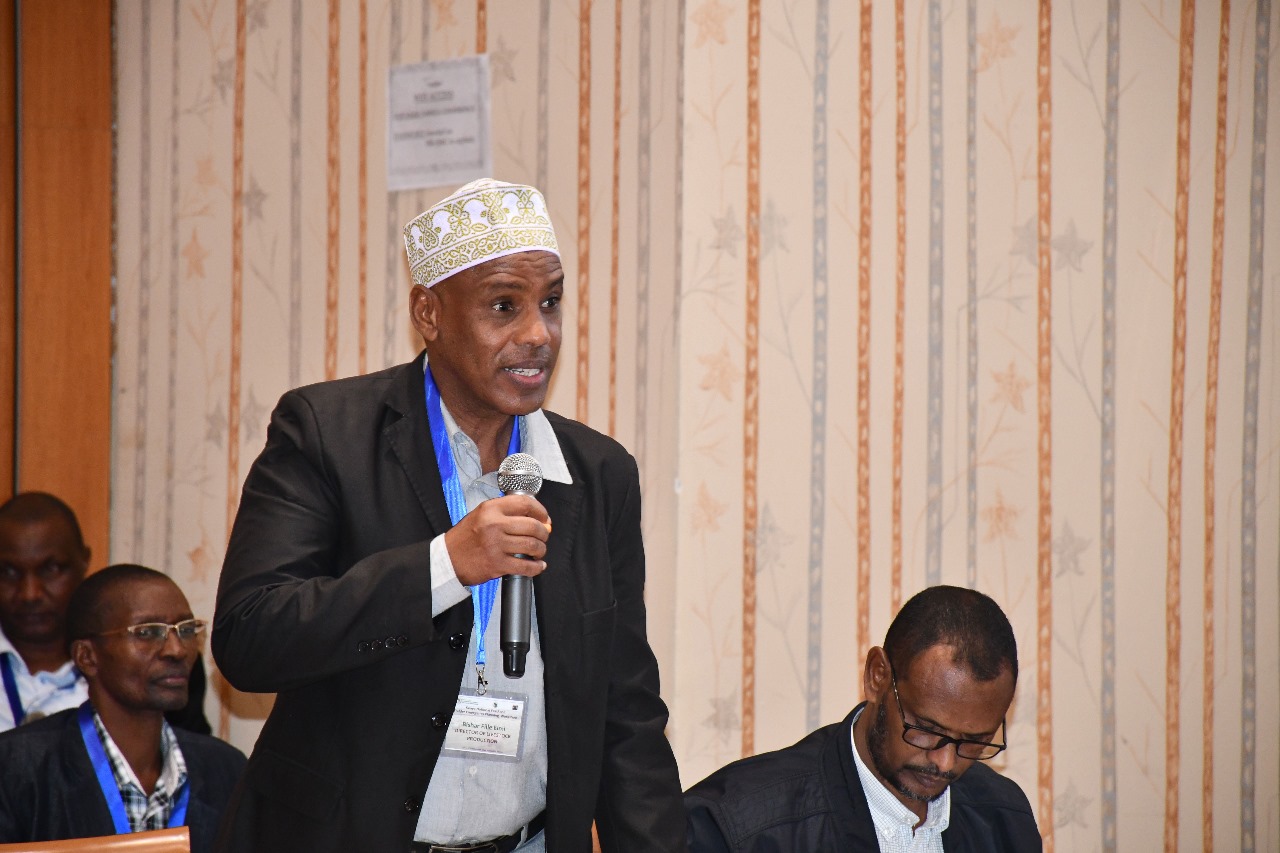Department to support producers to adopt new technologies to increase animal feed production
By Kennedy Nyambane (PCO)
The State Department for Livestock Development has put in place mechanisms to support producers to adopt suitable technologies to increase animal feed production and reduce national deficits from 60 per cent to 40 per cent by producing seeds, fertilizers, and agro chemicals.
The Department will also encourage irrigation technology to reduce rainfall dependency in animal feed production.
Speaking in Naivasha during a National Feeds Emergency Response Planning Workshop, the Principal Secretary Jonathan Mueke said to reduce feed imports, the government is finalizing plans to make public land available for commercial fodder production under Public-Private Partnership (PPP) arrangements.
This, Mueke said, will help to reduce deficit gaps, save the country of foreign exchange and help create local jobs.
“About 75 per cent of livestock are found in the rangeland. There is huge degradation of this important resource through invasive species. These invasive species require management even as we support rehabilitation of rangeland through re-seeding to increase the biomass available for feeding livestock,” the PS said.
In a speech read by the Director of Livestock Production Mr. Bashir Fille Elmi, Mueke said the government through the proposed livestock delivery model under the Bottom up Economic Transformation Agenda (BETA) will hire young entrepreneurs in selected wards to support the conservation and storage of forage and establish strategic feed storage facilities in every ward under the cooperative business model.
This, he said, will serve as feed aggregation and business centers, adding that the action is aimed at addressing capacity needs of the livestock keepers, ensure accessibility to animal feeds and improve livestock productivity.
The PS noted that the department is working with stakeholders in the public and private sector to promote alternative sources of animal protein such as black soldier flies.
This, he said, will reduce the competition for fish protein with humans and contribute to reduction of animal feed costs.
“I am glad to note that serious and especially young investors have come on board to invest in this area which promises a future for this enterprise,” the PS noted.
He added that the government will be promoting animal feed production, conservation and manufacturing investment opportunities in the International Investment Forum in Rome later in the year.
“I am glad to note that our pitching last year attracted some investments into the country, and it is my hope that this year’s pitching will yield even greater results for the good of the country,” he said.
Following warnings from the weatherman, he said, “It is our duty to prepare for the drought early enough and forestall the possible loss of animals and livelihood as happened previously. This is the first time that the country is sitting early to prepare for livestock drought emergencies”.
The PS added that the State Department will provide every support to ensure that the initiative succeeds and called upon everyone to contribute positively to make the preparedness and response seamless for the benefit of the livestock keeping community.

